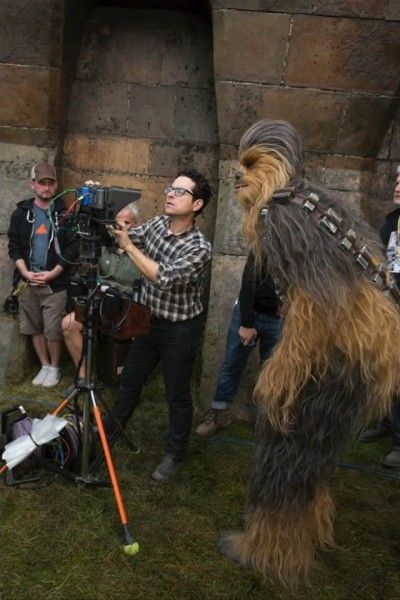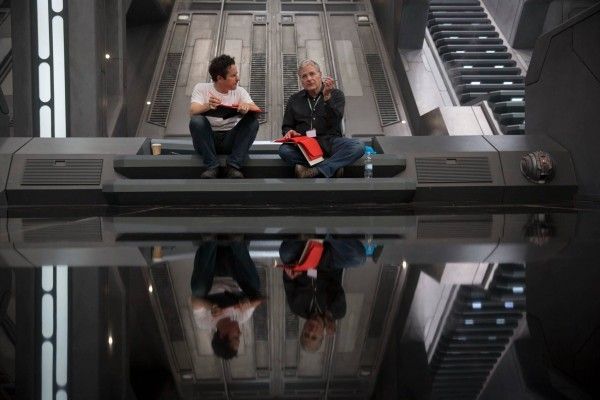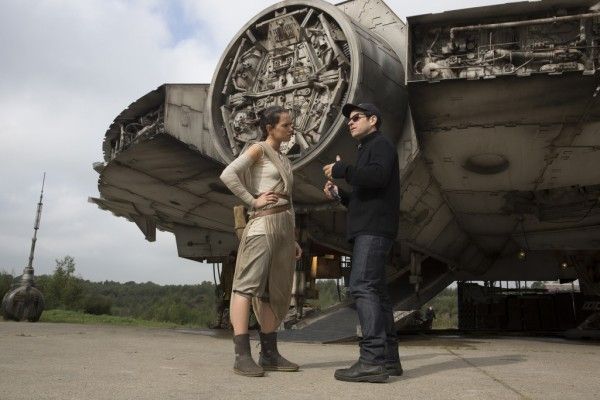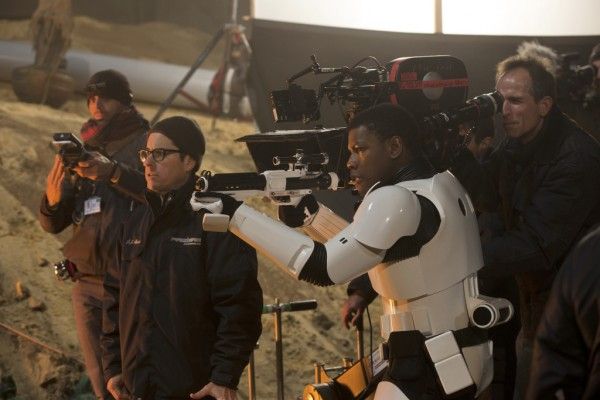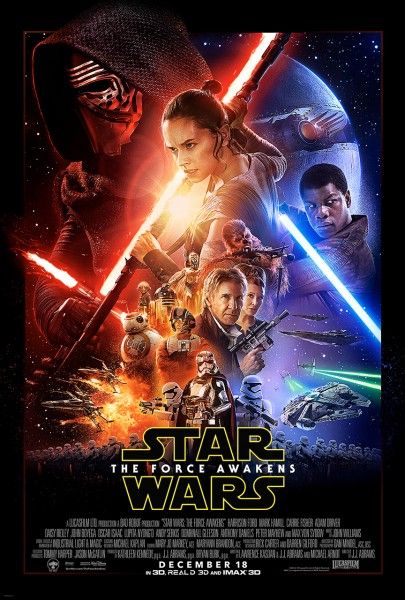The reluctance in my optimism about Star Wars: The Force Awakens has nothing to do with the prequels. While some have pointed to the trailers as a way of washing away the bad taste left by those films, and are now primed to hope again, I’ve keep my guard up because of director/co-writer J.J. Abrams, who seems to be an excellent director who doesn’t have the best sense of storytelling. He’s more focused on mystery boxes than unpacking good stories, and that made me cautious when it came to the upcoming Star Wars film.
However, in a new interview with Wired, he lays out a clear vision for tackling Episode VII. To begin, he acknowledges that Force Awakens should function like A New Hope where people realize that there’s a world of material that happened before the movie begins, and you don’t have to see it to care about the characters and their journey:
We wanted to tell a story that had its own self-contained beginning, middle, and end but at the same time, like A New Hope, implied a history that preceded it and also hinted at a future to follow. When Star Wars first came out, it was a film that both allowed the audience to understand a new story but also to infer all sorts of exciting things that might be. In that first movie, Luke wasn’t necessarily the son of Vader, he wasn’t necessarily the brother of Leia, but it was all possible. The Force Awakens has this incredible advantage, not just of a passionate fan base but also of a backstory that is familiar to a lot of people. We’ve been able to use what came before in a very organic way, because we didn’t have to reboot anything. We didn’t have to come up with a backstory that would make sense; it’s all there. But these new characters, which Force is very much about, find themselves in new situations—so even if you don’t know anything about Star Wars, you’re right there with them. If you are a fan of Star Wars, what they experience will have added meaning.
He then acknowledges that his past films have had story issues, and that this time, with the help of Empire Strikes Back and Return of the Jedi writer Lawrence Kasdan, who co-wrote Force Awakens, they’ve sorted things out before filming:
More than anything, I drew on personal experiences as cautionary tales, things that I didn’t want to do again. For example, I didn’t want to enter into making a movie where we didn’t really own our story. I feel like I’ve done that a couple of times in my career. That’s not to say I’m not proud of my work, but the fact is I remember starting to shoot Super 8 and Star Trek Into Darkness and feeling like I hadn’t really solved some fundamental story problems.
Commenting on those trailers that everyone has loved, Abrams says those are a fair representation of what fans can expect. “What I’m excited about is that the movie itself feels like those teasers and not like the movie is one thing and the teasers are something else,” says the director. And while he’s associated with secrecy and the mystery box, he was the one who made sure we got an early Christmas present last year with the first teaser. “I actually personally pushed to have a teaser come out a year before, just because it felt like, as a fan of Star Wars, if I could see even the littlest thing I’d be psyched a year out,” says Abrams. Why not? So we did.”
What really heartens me from the interview are quotes like these, where Abrams understands the total scope of the story, and that there are moments his film probably won’t have because they’ll need to build weight between pictures:
As a fan of Star Wars, I can look at those movies and both respect and love what they’ve done. But working on The Force Awakens, we’ve had to consider them in a slightly different context. For example, it’s very easy to love “I am your father.” But when you think about how and when and where that came, I’m not sure that even Star Wars itself could have supported that story point had it existed in the first film, Episode IV. Meaning: It was a massively powerful, instantly classic moment in movie history, but it was only possible because it stood on the shoulders of the film that came before it. There had been a couple of years to allow the idea of Darth Vader to sink in, to let him emerge as one of the greatest movie villains ever. Time built up everyone’s expectations about the impending conflict between Luke and Vader. If “I am your father” had been in the first film, I don’t know if it would have had the resonance. I actually don’t know if it would have worked.
Abrams is a fan, but he says he tried to approach the film objectively. It’s impossible to ignore being around Han Solo or stormtroopers, but they wanted to make sure they kept the focus on the story rather than coasting on the Star Wars name:
For example, when we were on-set and we were shooting a scene, it was always amazing to me to see Harrison Ford dressed as Han Solo. Or, wow, there’s a guy—a stormtrooper!—and he looks exactly like a stormtrooper. Remember the feeling of the villain stepping off his ship? Or the sound of the TIE fighters when they roar past you? We’ve all seen TIE fighters roar past us now for nearly 40 years; what makes that interesting? The point is, these scenes aren’t good just because those characters or things are there, even though it’s the greatest eye candy in the history of time.
We really tried to look at it from the inside out. What makes this story have a beating heart? What makes it romantic or fun or surprising or heartbreaking or hysterically funny? We simply approached this narrative from the point of view that this is a story about a young man and a young woman, not with the idea that we can do anything we want.
Another good example of Abrams recognizing the breadth of his story and the passage of time between Return of the Jedi and The Force Awakens is commenting on how this Han Solo isn’t the one we left in 1983:
It was important that Han Solo be Han Solo but not feel like he’s playing a 30-year-old dude. When you’re 70, you will have lived a different set of experiences. That has to be apparent in who he is. Harrison was required to bring a level of complexity that a 30-year-old Han wouldn’t be required to have.
These are the details that matter so much more than character names and episode titles and lightsabers. If a director wants to seriously examine what this universe is doing thirty years after a galactic event, and do so in a way that respects what came before but has the courage to shake things up and tell a bold new story, then I’m on board.
Star Wars: The Force Awakens opens December 18th. For more on the film, click here or on links to our recent coverage below.
For more on Star Wars, peruse our recent links below:
- Early 'Star Wars: The Force Awakens' Box Office Tracking Already Looking at Record-Shattering Weekend
- ‘Star Wars’: J.J. Abrams Reveals His Involvement with ‘Episode VIII’
- New ‘Star Wars’ Behind-the-Scenes Images Reveal the Making of ‘The Force Awakens’
- Everything You Need to Know about 'Star Wars: Episode I' in under 3 Minutes
- First ‘Star Wars: The Force Awakens’ TV Spot Looks to a New Generation’s Story


